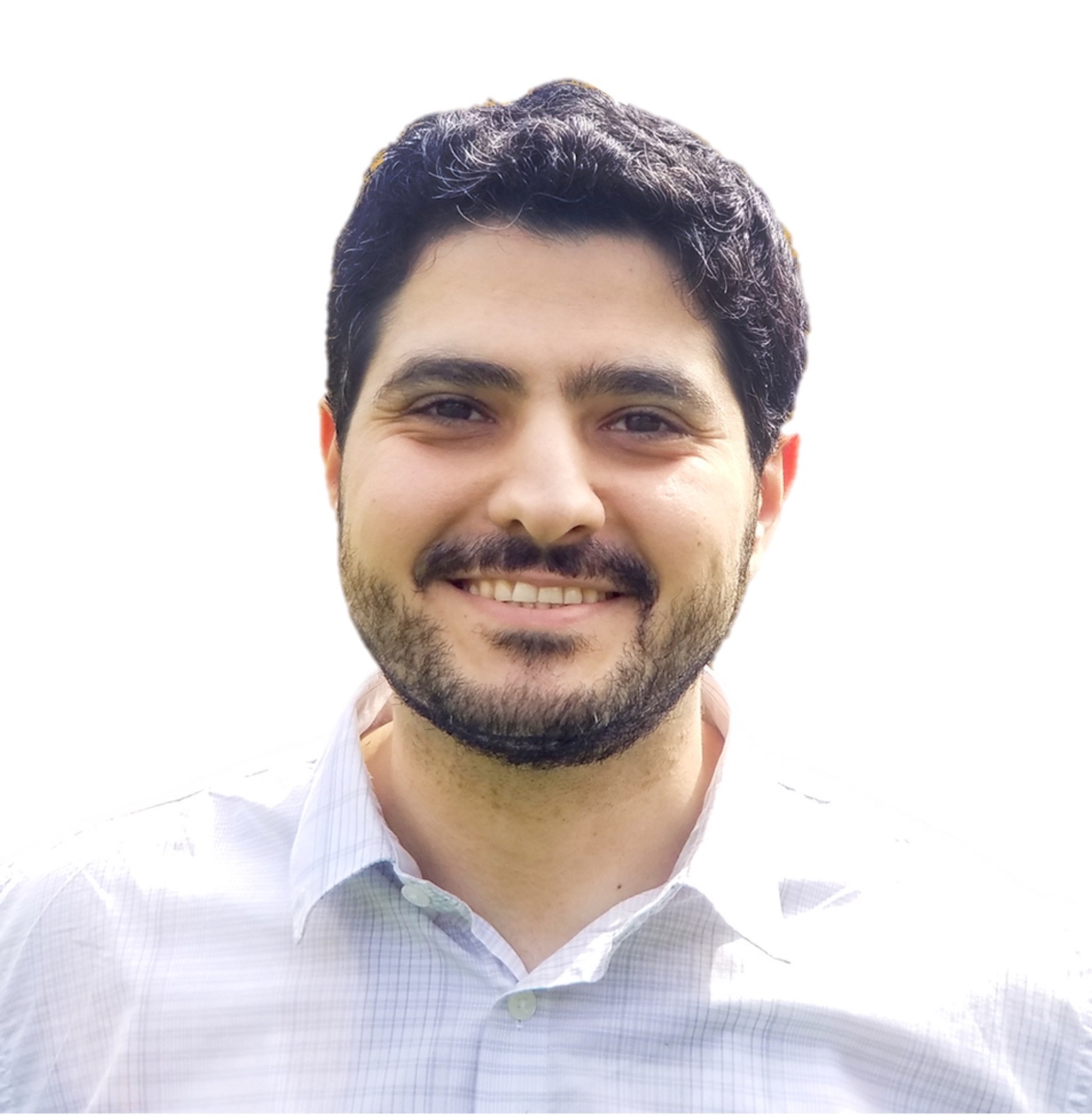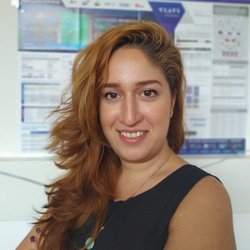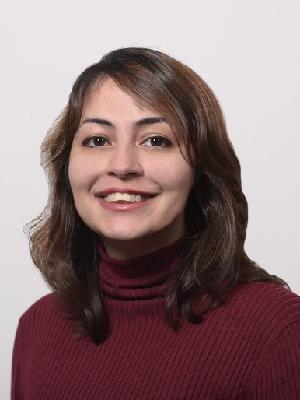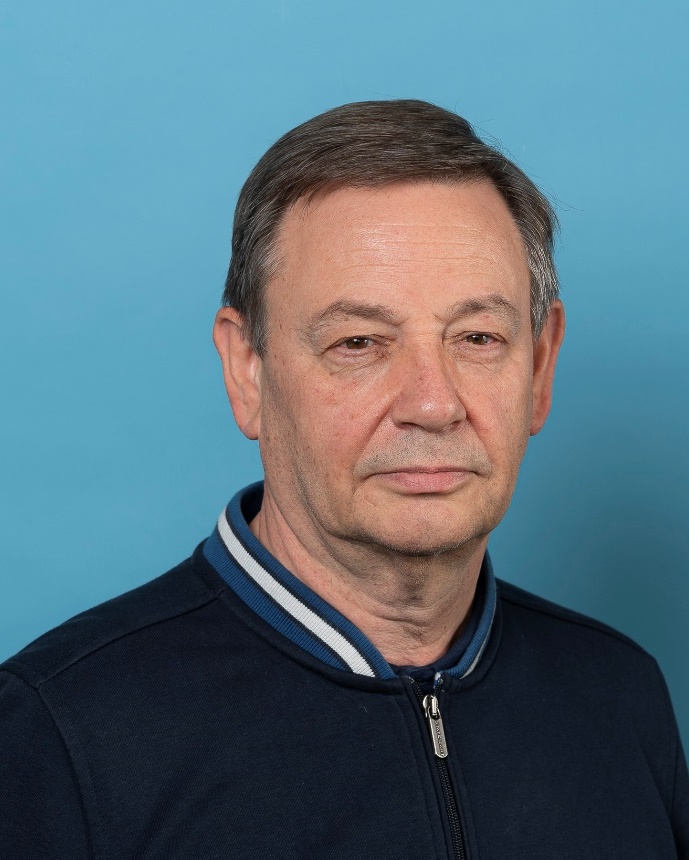Keynote
We have the pleasure of welcoming our keynote speakers at CompSys'23.
| Tuesday 27 June, 10:00 |
| Title:
A New Era In Wireless Networking: Millimeter Wave, RAN Virtualization, AI, and Joint Communication & Sensing
|
| By Haitham Hassanieh |
| École polytechnique fédérale de Lausanne (EPFL) |
| Abstract:
Wireless networks and sensors have become entrenched in every aspect of our lives, playing a central role in our homes, workplaces, and industries. With the rise of the Internet of Things and the increasing demand for mobile data, the world is witnessing an unprecedented boom in the number of wireless devices leading to significant research challenges. At the same time, new opportunities are emerging from the introduction of millimeter wave technology, RAN virtualization, and AI all the way to joint communication and sensing. In this talk, I will describe my team’s work on leveraging these opportunities to build scalable, practical, and efficient IoT and wireless technologies. I will describe our work on millimeter wave (mmWave) 5G wireless to enable fast beamforming and dense spatial reuse as well as our work on channel aware 5G RAN Slicing. I will then discuss how we leverage mmWave signals to enable through-fog high-resolution imaging for self-driving cars as well as contactless material sensing. I will also discuss how we can enable joint communication and sensing in next-generation wireless networks. Finally, I will touch on some of our work on enabling communication between micro and nano-implants using biomolecular communication.
|
| Short bio:
Haitham Hassanieh is an associate professor in the School of Communication and Computer Science at EPFL. His research is in the areas of wireless networks, mobile systems, sensing, and algorithms. Before joining EPFL, he was a professor at the University of Illinois at Urbana Champaign (UIUC). He received his Ph.D. from MIT in 2016. His PhD thesis on the Sparse Fourier Transform won the ACM Doctoral Dissertation Award, the Sprowls best thesis award at MIT, and TR10 Award for the top ten breakthrough technologies in 2012. His research has received best paper awards at ACM SIGCOMM and ACM MobiSys. He is also the recipient of the NSF Career Award, the Google Faculty Research Award, and the Alfred Sloan Foundation Fellowship.
|

| Wednesday 28 June, 09:00 |
| Title: 6G architecture driven design to connect the three worlds |
| By Bahare M Khorsandi |
| Nokia Bell Labs |
| Abstract:
The rapid evolution of wireless communication technologies has paved the way for the development of the next generation of cellular networks. Building upon the foundations laid by its predecessor, 5G, 6G aims to deliver unprecedented levels of connectivity, data rates, and latency reduction, catering to the diverse requirements of emerging applications such as network-as-a-sensor, the AI-native air interface, as well as mixed reality (XR), and autonomous systems. 6G is no longer a long-term aspiration. It is a framework of technologies that will become a reality by the end of the decade. We are transitioning from the idea-generation phase to systematization and proof-of-concept realization. this talk is dedicated to presenting the latest progress on many of the key technologies in the 6G ecosystem and the envision for future 6G systems. |
| Short bio:
Bahare M. Khorsandi is a research engineer at Nokia Strategy and Technology based in Munich Germany. She is active in various internal and external 6G projects. Most recently, being a PMT member and work package lead in the European flagship project Hexa-X. She also actively contribute to the mobile architecture design in Hexa-X-II as well as German founded lighthouse project 6G-ANNA. She was awarded both her master’s and Ph.D. degrees in Telecommunication Engineering from the University of Bologna/Italy in 2016 and 2020 respectively. Her main research interests are System architecture, Network analytics, and Automation.
|

| Wednesday 28 June, 13:30 |
| Title: The right action at the right time: past, present, and future trends in real-time systems design (slides available here) |
| By Mitra Nasri |
| Technical University Eindhoven (TU/e) |
Abstract:
Real-time systems are pervasive in the automotive, robotics, smart industry, manufacturing, and healthcare domains, where the system’s safety, dependability, or quality of service depends on both functional and temporal correctness, namely, performing the right actions at the right time. Guaranteeing temporal correctness often involves bounding the worst-case end-to-end response-time of the system (e.g., from the moment input data are sent by a sensor to the moment the system responds to it). Bounding the response-time, in turn, requires detailed knowledge about how the underlying hardware platform, operating system, and software components/applications interact with each other and how that interaction influences the timing behavior of the system.
This talk presents the past, current, and future trends in modeling, designing, and verifying real-time systems. It walks through the challenges that new hardware, software, and network technologies introduce in the verification of temporal correctness and discusses existing solutions and open research problems. |
Short bio:
Mitra Nasri is an Assistant Professor at Eindhoven University of Technology (TU/e). She received her PhD from the University of Tehran, in 2015. Before joining TU/e, she was an assistant professor at Delft University of Technology (TUDelft), a postdoc fellow at the Max Planck Institute for Software Systems (MPI-SWS), Germany, and a postdoc researcher at TU-Kaiserslautern, Germany.
Her research interests include modeling, designing, and verifying real-time systems. She has contributed to several outstanding scheduling policies for embedded real-time systems and a formal verification framework for timing analysis and assessment of temporal correctness of multicore real-time systems. To date, she has published more than 50 papers on those topics in peer-reviewed conferences and journals. Her research has been recognized by the Best-Paper Award of RTAS’22 and RTNS’16, and the Outstanding-Paper Award of RTSS’20 and RTAS’17. Since 2022, she has been an executive member of the IEEE Technical Committee on Real-Time Systems (TCRTS) which steers RTSS, RTAS and ICCPS conferences, and the IEEE Benelux chapter on Communication and Vehicular Technology (COM/VT). She has received a Delft Technology Fellowship Award (2018), an Alexander von Humboldt Fellowship Award for post-doctoral researchers (2016), and a German Academic Exchange Service (DAAD) scholarship for young researchers (2013).
|

| Thursday 29 June, 11:00 |
| Title: Pixelated Capacitive Sensors for Embedded Smart Multi-Sensing Application |
| By Frans Widdershoven |
| Delft University of Technology (TU Delft) and NXP Semiconductors |
| Abstract:
Autonomous smart IoT end-nodes need sensors to interact with their environment. Pixelated Capacitive Sensor (PCS) technology provides a true CMOS-compatible platform for embedding a variety of late-definable sensor functions in single generic CMOS chip, e.g. a microcontroller. This enables designing a variety of tiny low-power smart Edge-IoT applications without expensive upfront investments in modifying precious CMOS processes with long lead times. The PCS technology will be introduced and illustrated with examples. Challenges for embedded tinyML algorithms, necessary to add smartness, will be discussed.
|
| Short bio: Frans Widdershoven is part-time full processor at Delft University of Technology (TU Delft) and Fellow at NXP Semiconductors. He received his Master’s degree from Eindhoven University of Technology and his Ph.D. degree from University of Twente. Before joining NXP in 2006, he worked at Philips Research Labs for 22.5 years. He has over 79 publications and conference contributions and 46 granted US patents. Currently, Frans works in the areas of machine learning, CMOS-based smart embedded sensors, and cryo-CMOS for quantum computing. |




